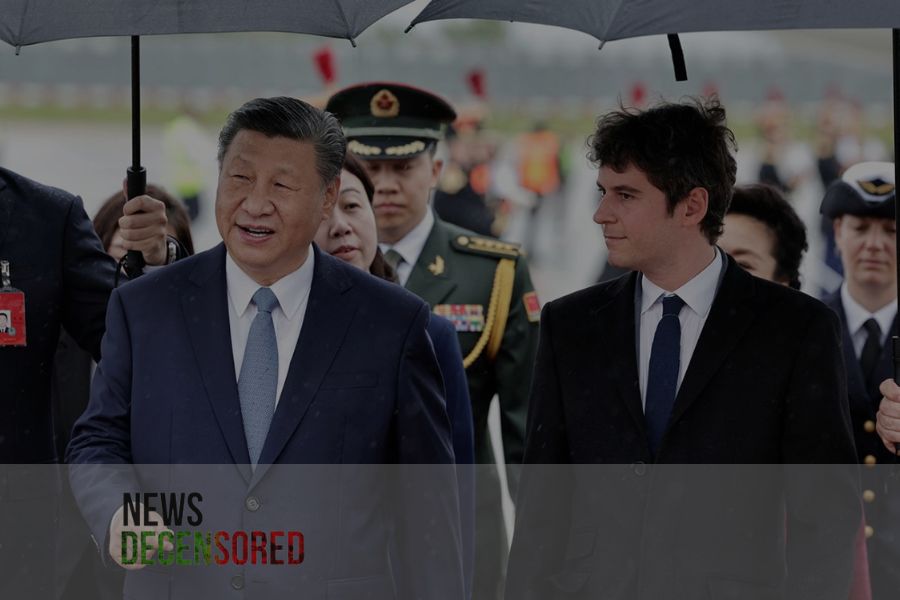Chinese President Xi Jinping will spend the bulk of his five-day tour of Europe this week in Hungary and Serbia, located in the eastern half of the continent, a region that Beijing has used as a foothold for its expanding economic ambitions in Europe.
French President Emmanuel Macron received his Chinese counterpart Xi Jinping, who arrived on a two-day state visit in Paris on Monday. Macron intends to pressure Xi to use his influence to push Russia towards ending the war in Ukraine. The leaders must also discuss trade disputes over electric cars, cognac, and cosmetics.
Macron’s office said talks on diplomatic efforts to support Ukraine and pressure Russia were a top priority for France. Discussions will include the Middle East, trade issues, global challenges, and climate change. The European Commission president will join part of the meetings to raise broader EU concerns.
As France prepares to host the Summer Olympics, Macron said he would ask Xi to use his influence to make the games a “moment of diplomatic peace” and respect the Olympic Truce.
Chinese President Xi Jinping, French President Emmanuel Macron, and European Commission President Ursula von der Leyen are scheduled to hold a tripartite meeting at the Elysee Palace in Paris on Monday.
After stopping in Paris on Monday, at the start of his first European tour in five years, Xi will head to Hungary and Serbia, two countries seen as friendly to China and close to Russian President Vladimir Putin.
While European leaders are pursuing more protectionist policies to limit Beijing and Moscow’s influence on the continent, the governments of conservative nationalist leaders Viktor Orbán in Hungary and Aleksandar Vucic in Serbia have aggressively pursued economic ties with China, calling for significant investments in infrastructure, manufacturing, energy, and technology.
As the first country in the European Union to participate in the “Belt and Road” initiative, which was first launched by Xi Jinping in 2013, to promote trade with Asia, Africa, and Europe, Hungary worked to find a middle ground between its membership in the European Union and NATO, and openness—unusual influence on diplomatic and trade relations with eastern regimes.
One of the main benefits to China of establishing bases within the European Union is the avoidance of costly tariffs.
In December, Hungary announced that one of the largest electric vehicle manufacturers in the world, the Chinese company BYD, would open the first European factory to produce electric cars in the south of the country.
In Serbia, China operates mines and factories across the Balkan country, while billions more in infrastructure loans have financed new roads, bridges, and facilities.
Hungary and Serbia agreed with Beijing to modernise the railways between the two countries capitals, Budapest and Belgrade, as part of the “Belt and Road” plan to connect with the Chinese-controlled port of Piraeus in Greece as an entry point for Chinese goods to the centre of the country and Eastern Europe.















